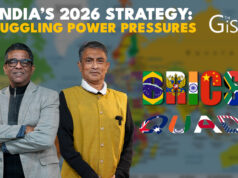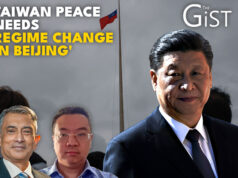NEW DELHI: On #TheGist, Dr Avinash Paliwal, Associate Professor in International Relations, School of Oriental and African Studies(SOAS), University of London, Deputy Director of the SOAS South Asia Institute and Author, ‘My Enemy’s Enemy: India in Afghanistan from the Soviet Invasion to the US Withdrawal’ in conversation with StratNews Global Associate Editor Amitabh P. Revi.
Dr Paliwal discusses the earthquakes in eastern Paktika province that have killed hundreds of people, how India can help with substantial humanitarian aid, the Kabul gurdwara attack on June 18, its implications for India’s outreach to the Taliban, the first publicly disclosed visit by Indian officials since the takeover on August 15, 2021, the meetings with Taliban officials that the team led by J.P.Singh, Joint Secretary(Pakistan, Afghanistan, Iran) in the Ministry of External Affairs had, the Islamic State Khorasan Province(ISKP) claim of the gurudwara attack, whether it’s a signal from Pakistan’s deep state and ISI against India’s moves to re-engage, why Taliban officials have been making statements promising security, what the Taliban hopes to gain, dealing with UN and U.S. designated terrorists, how the U.S., Iran, Russia, China, and Central Asian countries are dealing with the regime, whether New Delhi needs to re-establish a diplomatic presence, the e-visa issue for Afghans and what India’s short, medium and long-term foreign policy interests are.
Watch this interview in which Dr Paliwal argues, “India’s relations with Afghanistan are more than just about engaging the Taliban. To ensure continuity in its ties with all Afghans, and to support them with much-needed aid, India must reestablish its diplomatic presence in Kabul. Given India-Pakistan dynamics, there’ll never be a risk-free moment in future to do so. The Taliban’s desire for India to return, Pakistan’s focus on its domestic turmoil, and Iran’s willingness with logistical support to cushion against known security risks to Indian personnel, makes now as good a moment as any other to capitalise on the progress made behind-the-scenes.”




